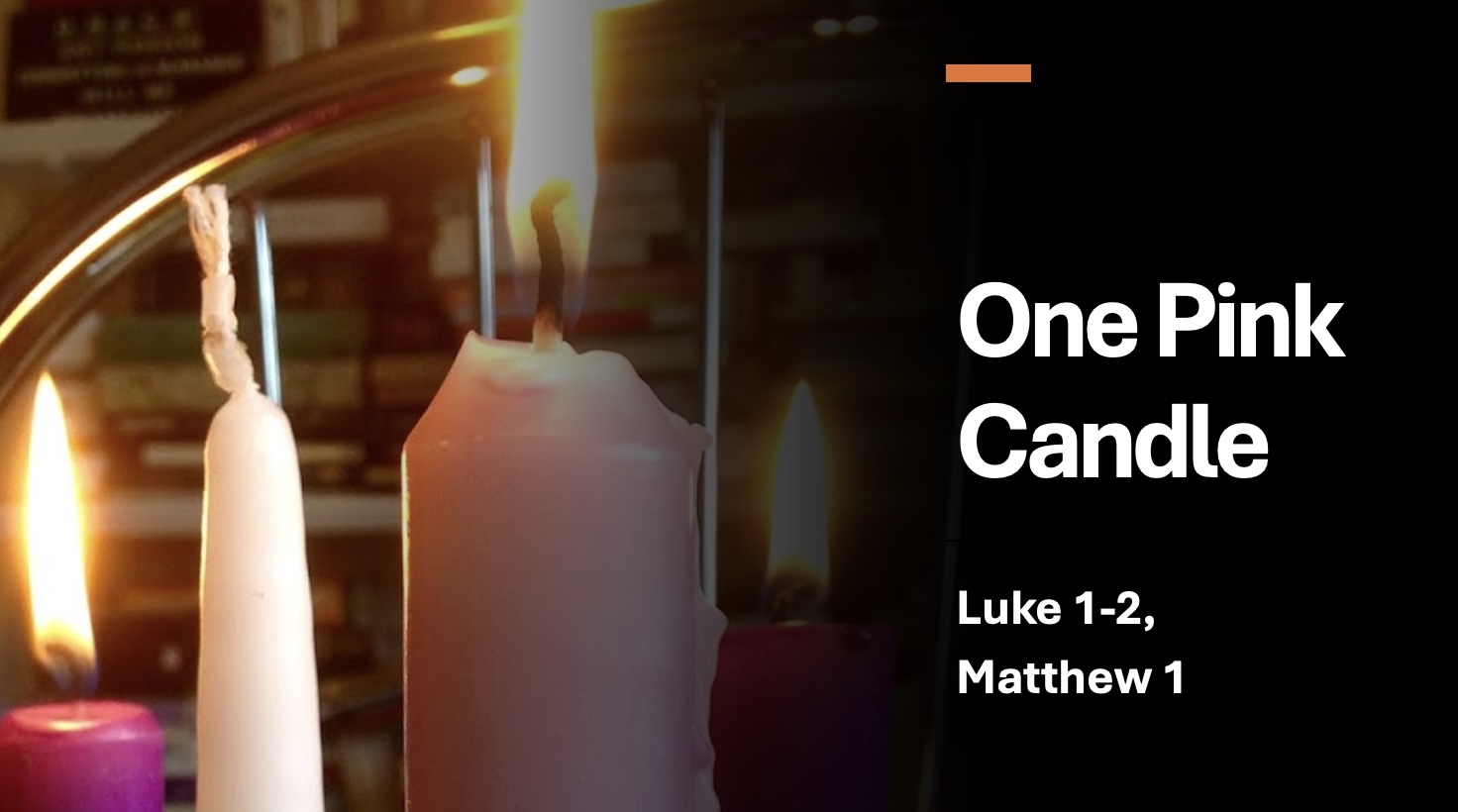Category: Sermons
-

One Pink Candle (An Advent Sermon About Joy)
Have you ever wondered why there’s one pink candle on the Advent wreath? What makes the third Sunday of Advent Rejoice Sunday
-
Home For Good (Revelation 21-22)
In Revelation 21–22, God answers the deepest longing of the human heart—the longing for home. The Bible begins with God walking with humanity in a garden, and it ends with God making His home with His people in a garden-city. This isn’t escape from the world; it’s the restoration of everything sin has broken. Every…
-
Between Two Advents (Revelation 20)
Revelation 20 speaks to Christians living in the “in-between”—after Christ’s first coming but before His return. In the tension of the middle, we find hope: Jesus wins, evil ends, and our future is secure.
-
Armageaddaboutit (Revelation 19-21)
Revelation 17–19 confronts us with four contrasting pairs—Babylon or the Bride, the dirge or the doxology, the great supper of God or the marriage supper of the Lamb, the rider on the beast or the Rider on the white horse. These chapters show that when God wins, the question isn’t whether He triumphs — it’s…
-
Seals and Trumpets and Bowls, Part 2 (Revelation 13-16)
Revelation 13–16 reveals a world full of convincing counterfeits—and a God who exposes them with truth, mercy, and final justice. The beasts form a counterfeit trinity, demanding allegiance, but Revelation 14 lifts our eyes to the Lamb who stands victorious on Mount Zion. Heaven answers hell’s rage with the gospel, with warning, and with a…
-
Seals And Trumpets and Bowls, Oh My! (Part One)
Revelation 6–12 is the part of the Bible most people would rather skip—the seals, the trumpets, the judgments, the dragon. But these chapters don’t reveal chaos; they reveal control. God’s justice is measured, His mercy is patient, and His victory is certain. Evil is real, the war is raging, but the outcome is not in…